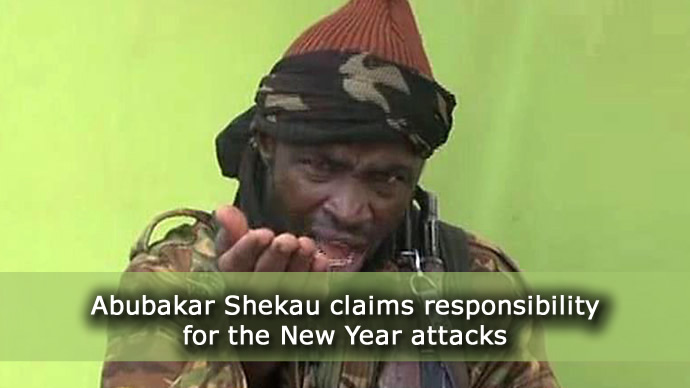Abubakar Shekau the leader of Boko Haram released a video on Tuesday claiming responsibility for some attacks in northeast Nigeria during the New Year.
The shaded leader released his first video message in months in the midst of a surge in violence providing reason to feel ambiguous about the Nigerian government's claim that the jihadist group is crushed.
"We are healthy and nothing has happened to us," said Abubakar Shekau in the 31 minute video message talked in the Hausa dialect regular across over northern Nigeria.
“Nigerian troops, police and those creating mischief against us can’t do anything against us, and you will gain nothing.
“We carried out the attacks in Maiduguri, in Gamboru, in Damboa. We carried out all these attacks,” he said.
The video at that point demonstrates footage from a Christmas Day attack on a military checkpoint in Molai town on the edges of the upper east Nigerian city of Maiduguri, which the military said was ruined by troops following one hour of fight.
Boko Haram contenders in torn garments were indicated shooting from the back of battered pickup trucks.
Abubakar Shekau's message comes amid a quickening of Boko Haram attacks and days after the terrorists killed 25 persons outside Maiduguri.
In December, Boko Haram attacked guards of Nigerian soldiers and dispatched suicide bombers into crowded markets in towns across northeast Nigeria.
No less than 50 persons were killed in November when a suicide bomber exploded himself at a mosque in Adamawa state.
In any case, President Muhammadu Buhari said in his New Year address that Boko Haram has been "beaten".
"Disengaged attacks still happen, however even the best-policed nations can't keep decided criminals from conferring ghastly demonstrations of terror," said Buhari.
Abubakar Shekau, a leader known for his extensive, wild-looked at video messages, assumed control over Boko Haram in 2009 after the demise of its originator Muhammad Yusuf.
In 2016 Boko Haram suffered a noteworthy split, when the purported Islamic State gather perceived Yusuf's son, Abu Mus'ab al-Barnawi, as leader.

